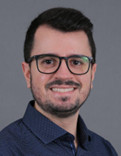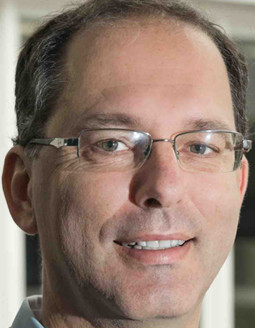Description
Virtualization today plays a critical role in the IoT. From the cloud to the edge, solutions are deployed by leveraging virtualization technologies. The applicability of these technologies along with their interoperability raises concerns regarding security and safety. The claim that hypervisors bring security is not always true, sometimes misunderstood and underlooked. Hypervisors can bring security but it strongly depends on the selected hypervisor type, architecture, and configuration as well as the development processes in place while building it up. Security does not come for free, and it has to be employed from ground up throughout systematic and expensive stages and most of the time results in a tradeoff between features, performance, and flexibility. For example, a single backdoor found in the hypervisor codebase can be exploited to compromise an entire system with different criticality VMs or even be spread over a cluster of devices in the sense that those devices have similarities.
The proposed special session provides a forum for bringing together researchers from academia and industry to explore and present their findings in Artificial Intelligence, cybersecurity issues of IoT, and AmI. The participants are encouraged to discuss the theories, systems, technologies, and approaches for testing and validating them on challenging real-world, safety-critical applications. Thus, suggested topics include, but are not limited to, the following points:
Prospective authors, from academia and industry, are invited to submit original papers on topics including, but not limited to:
- Hypervisor support on emerging hardware technologies;
- Hardening and Secure hypervisor solutions on IoT devices;
- Virtualization technologies and innovative architectural approaches;
- Sharing devices virtualization approaches (e.g. QEMU, virtIO);
- Testing frameworks for embedded hypervisors;
- Best practices in Secure Hypervisor Development Life Cycle;
- Deployment of mainstream hypervisors for IoT use-cases;
- Vulnerabilities and mitigations on commercial and open-source virtualization technologies.
Important Dates:
- Paper submission:
13 June 2022August 1st, 2022 - Acceptance Notification:
8 July 2022August 16th, 2022 - Camera-Ready Paper Submission Deadline:
31 July 2022August 31st, 2022
Paper should be six (6) pages in length and follow the instruction provided for the main Conference. The conference allows up to two additional pages for a maximum length of eight (8) pages with payment of extra page charges once the paper has been accepted.
Chairs
Dr. Everton de Matos, Technology Innovation Institute, Abu Dhabi, UAE

EVERTON DE MATOS received a Ph.D. in Computer Science from the Pontifical Catholic University of Rio Grande do Sul (PUCRS). He was awarded a Fulbright scholarship to develop part of his doctoral dissertation at the University of Southern California (USC). He is currently a Senior Security Research Engineer at Technology Innovation Institute, United Arab Emirates, in the Secure Systems Research Center department. He is currently focusing his research on the virtualization for Embedded Systems topic, on the seL4 Microkernel. He has several publications in important conferences and journals. His areas of interest are security for embedded systems security, Internet of Things, virtualization, and context-aware security.
Mr. Jorge Pereira

JORGE PEREIRA is currently contributing to drive innovative research on seL4 Microkernel towards its maturity and widespread adoption. Jorge is an enthusiast with 10 years of hands-on experience and in-depth background in commercial and open-source hypervisors. In his past, he has worked as a senior R&D engineer at PROVE & RUN in their formally-verified microkernel – ProvenVisor- and senior Security Architect at NXP SEMICONDUCTORS where he was contributing particularly for LTI virtualization projects – with Jailhouse and Xen-, security of i.MX8 HSMs, among other security-oriented projects. Jorge holds an McS in Electronics Engineering and Computer from University of Minho, Portugal, and post-graduation at Jilin University in China. He has 11 publications in secure hypervisors, hardware-assisted operating systems, and trusted execution environments.
Dr. Sandro Pinto, University of Minho, Portugal

SANDRO PINTO is an Associate Research Professor at the University of Minho, Portugal. He holds a Ph.D. in Electronics and Computer Engineering. Sandro has a deep academic background and several years of industry collaboration focusing on operating systems, virtualization, and security for embedded, cyber-physical, and IoT-based systems. He has published 70+ scientific papers in top-tier conferences/journals (e.g., IEEE S&P, Usenix Security, IEEE IoT Journal, etc) and is a skilled presenter with speaking experience in several academic and industrial conferences (RISC-V Summit, Embedded World, Black Hat, Hardwear.io, etc). Sandro is a long-term supporter of open source projects and is currently helping several companies and institutions to make security practical at scale.
Dr. Fabiano Hessel, Pontifical Catholic University of Rio Grande do Sul, Brazil

FABIANO HESSEL is a Full Professor of Computer Science at PUCRS – School of Technology, Research Productivity Scholarship from CNPq, Coordinator of the FAPERGS Advisory Committee for the areas of Mathematics, Statistics and Computing. Professor Hessel was an advisor to the Dean of Research at PUCRS in the areas of Innovation, Development, and Cooperative Projects with industry. He served as a guest expert (2020-2021) with the Secretary of Innovation, Science and Technology of the State of Rio Grande do Sul to establish the foundations of the TEC4B (Technology for Business) program. He received a PhD in computer science from the University Grenoble Alpes, France (2000). He is the leader of the IoT, Blockchain, and Cybersecurity research group. Professor Hessel is a speaker on the topics of IoT, Industry 4.0, Blockchain/Smart contracts, Web 3.0 and Cybersecurity.
Please submit your paper for this Special Session using the link to eWorks:
If you have any questions, please contact Dr. Everton de Matos: everton.dematos@tii.ae


